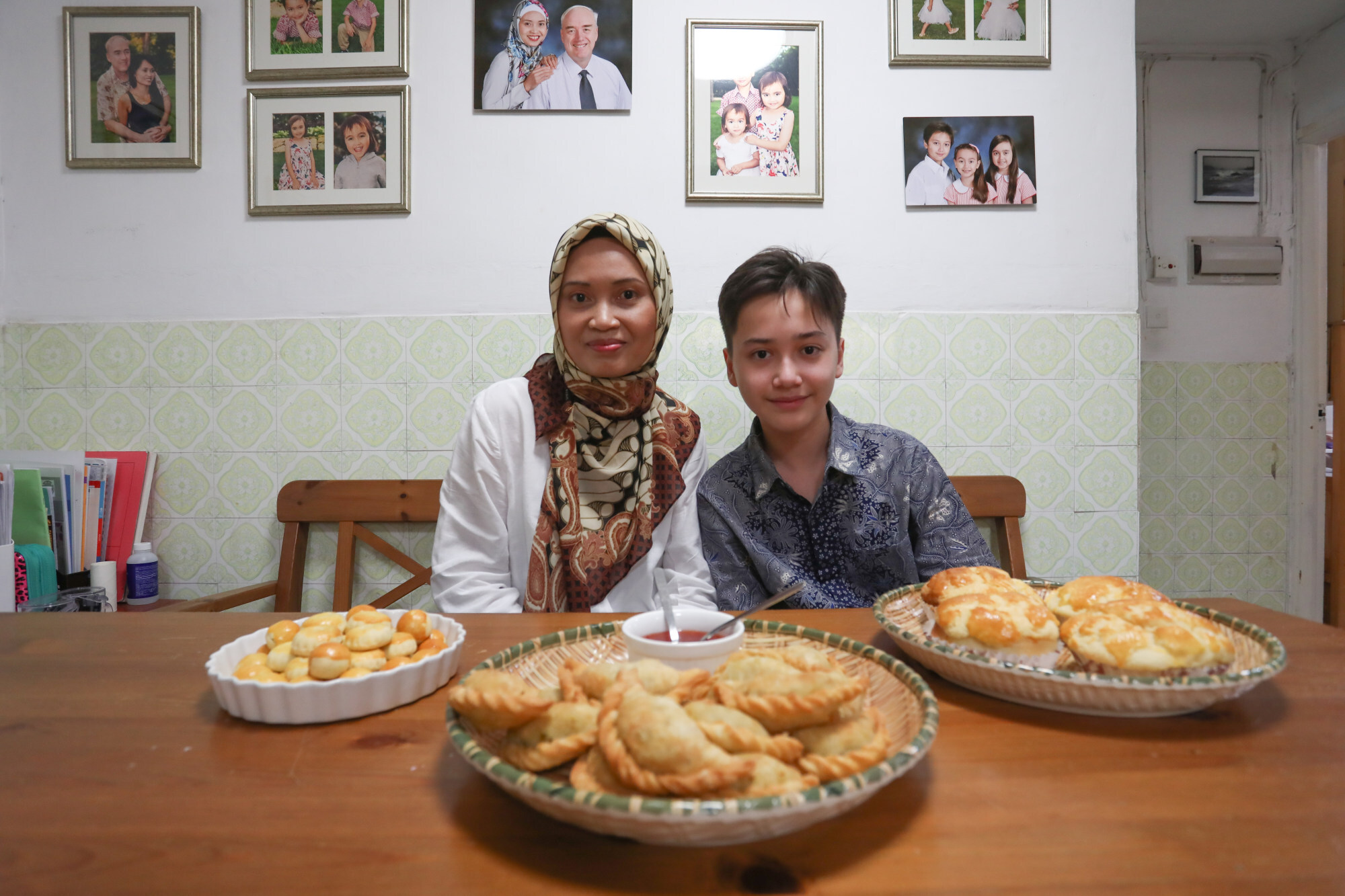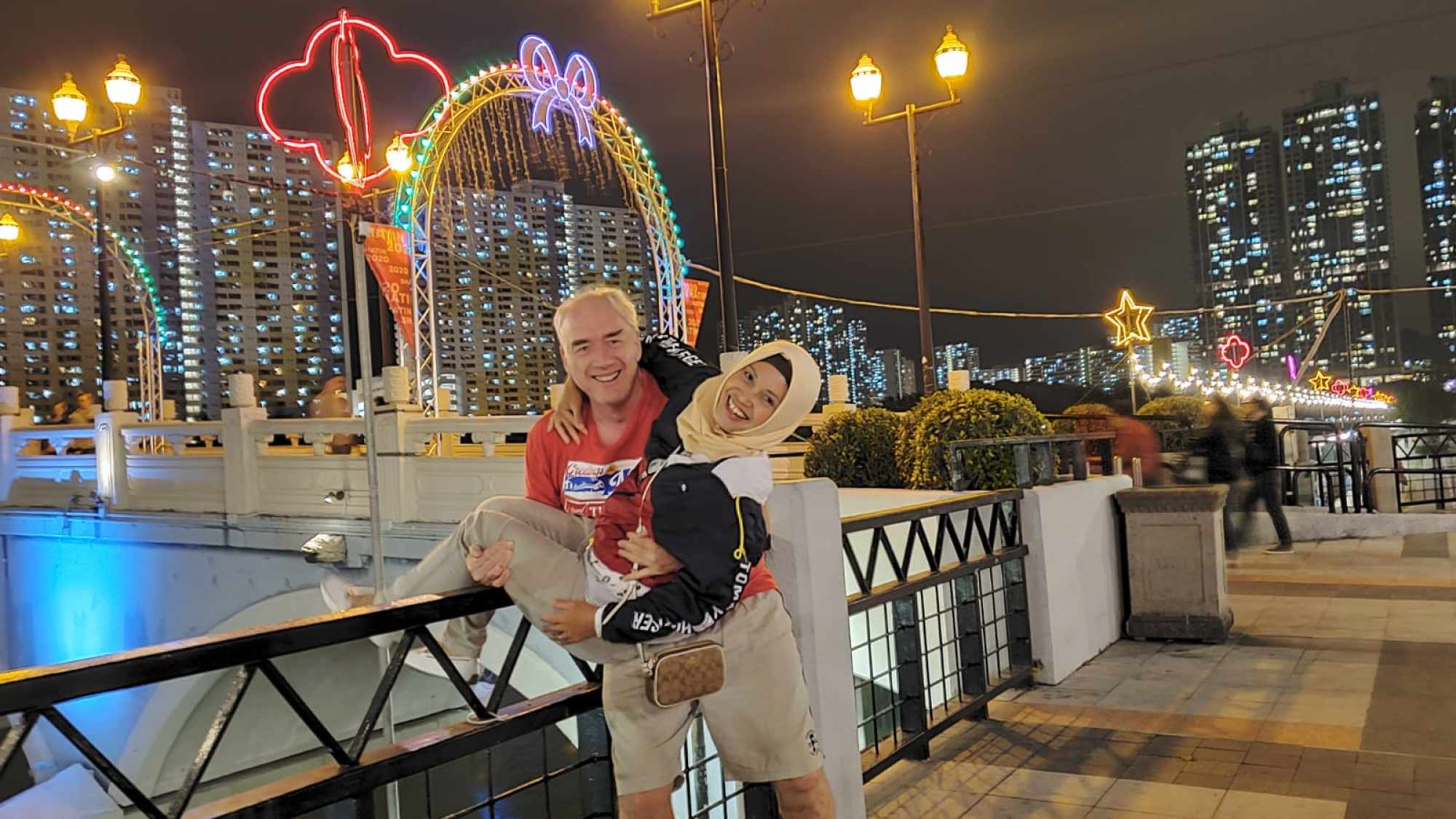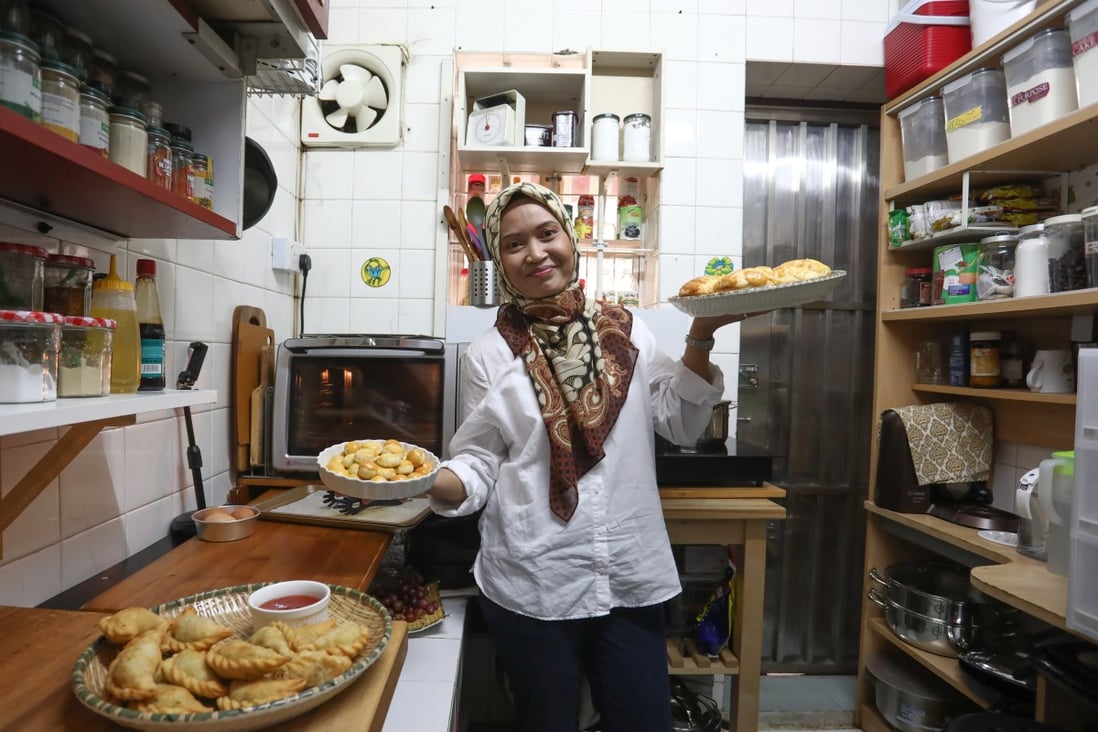Nikmatul Rosidah, Hong Kong’s shy Indonesian YouTube star, on her family and cooking videos, and being recognised around the world
Nikmatul Rosidah, Hong Kong’s shy Indonesian YouTube star, on her family and cooking videos, and being recognised around the world
- Rosidah started her YouTube channel in 2013 to document her daughter’s recovery from a brain tumour
- It took off when she started posting family and cooking videos, and has 1.4 million subscribers, with 1,000 more joining every day
One of Hong Kong’s most popular YouTubers makes her videos from a village house in the New Territories – in neither of the city’s official languages – and is really quite shy.
Indonesian Nikmatul Rosidah’s videos, which focus on cooking demonstrations and elements of life with her family, are so popular that the family now get endless selfie requests on the street, and have even had a few unsolicited visits to their home.
Originally from a small village near Surabaya, East Java, Rosidah has lived in Hong Kong for about 20 years. As with many YouTubers, her channel started as a hobby, but in her case it was prompted by Cassandra, the older of her two daughters, being diagnosed with a brain tumour; as she stayed at home to care for her, Rosidah documented her recovery.
Her first video was uploaded in October 2013, but she started to get serious traction with one that followed nine months later. “It was my daughter trying to blow out a candle, which she didn’t find very easy,” she says. “There were a lot of people laughing at it, and it went viral.”
Since then about 1,500 other videos have followed, several a week – “every day when I’m in the mood”, as she puts it. Those videos have earned her 1.4 million subscribers, making her one of Hong Kong’s top YouTubers; about 1,000 new ones join every day. She currently receives about 150,000 views a day, and plenty of her videos have several million views – the most popular of all, for fish curry, has 5.6 million.

The cooking videos feature a mixture of Indonesian classics and international favourites, with a particular focus on baking, from croissants to pineapple buns (your correspondent can confirm that her rendition of the latter is very good indeed). They are mostly in Bahasa Indonesia, with English subtitles for the important stuff like ingredients, plus conversations with the family in English.
The videos are shot around the dinner table and sometimes on family trips, and feature the other stars of her channel: her three children, Cassandra, now, 13, plus Daniel, 14, and Carissa, nine, as well as her husband, Paul Dobson, a Canadian teacher, who is also very clearly her biggest fan.
The videos are mostly shot and edited on her phone, with the editing taking about three hours; she has a Canon camera for close-ups and a GoPro for (non-cooking) action shots. The videos have a pleasing homespun feel that makes them authentic and accessible, much like the recipes she presents. That, she thinks, is the key to her success.
“Our food is regular, ordinary food, and that’s one of the things that appeals to people. People like food that is very village-style. What I show is just what I cook every day – it’s not for show.”
Most of her fans are in Indonesia, Malaysia and Singapore, with other subscribers as far away as Rio de Janeiro, Cancun in Mexico, Cape Town and Hawaii, but Hong Kong is her fourth biggest market. She rarely features on lists of the city’s most popular YouTubers, which possibly says more about the people who compile those lists than it does about her channel’s popularity. Because in the Bahasa Indonesia-speaking world, she’s quite famous.
This came as a bit of a shock at first. “I didn’t know I was that popular,” she says. “When we went on holiday, people recognised me. In Hong Kong I started finding that people know me.”

That was hammered home in 2016, when the family went on a trip to the Hong Kong Flower Show in Victoria Park – and found themselves mobbed by a crowd of fans wanting selfies. On another occasion, adds Paul: “We were in a city in Canada I’d never been to before, we went to the zoo, and there were people there saying ‘Hi, Rosidah’.”
And it’s not just Rosidah who has achieved fame through the channel – the whole family get recognised, as a group and individually. They have even had people come to the door of their rather obscurely located home, wanting to meet them. And on one trip through Singapore airport, says Paul, a customs officer said to him: “‘I know you.’ ‘Er … no, you don’t,’ I said back, and he said, ‘Yes, you’re Mr Paul!’ Then we went to McDonald’s and the servers were saying hello to us.”
The attention is most intense in Indonesia, though, and when there they are often deliberately vague online about their location. Daniel has quite a few young female fans in Indonesia, and has even had unsolicited Instagram fan pages set up on his behalf (his parents, understandably, are not too happy about this; they have also opted for a moratorium on photos of the children for the time being).
Some attention, though, is much more welcome. Rosidah has picked up some famous followers, including Indonesian actor Marissa Haque, of whom she has long been a fan herself; and she’s had her videos bought by Indonesian TV channels and used as segments within programmes.
She also attracts prospective sponsors who want to send her products to use, from blenders to beauty creams, at the rate of one every couple of days, but she mostly turns them down for fear of undermining her credibility. She has appeared on an Indonesian TV cooking programme promoting a brand of yeast, though.
She makes about HK$400,000 (US$52,000) a year from the channel, about which she is very modest – her husband, not so much. “I’ve seen the amount of hard work she’s done,” he says. “For her to be at this level, I’m so proud of her. I just want her to get the recognition she deserves.”
Someone else she says is very happy: her mother in Indonesia, for whom she bought an iPad a while ago, which is now used exclusively for watching her videos. Making them, says Rosidah, reminds her of home.

“I wish there was no pandemic so I could go to Indonesia and spend more time with my relatives. If I cook my village cooking, it relieves my homesickness. My food reminds me of home. YouTube is just fun.”



Comments